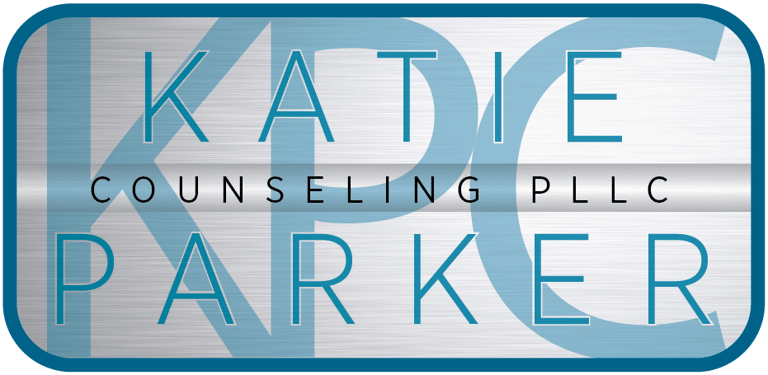The Evolution of Modern Counseling: Evidence-Based Practices
While learning coping skills and talking through problems are crucial aspects of therapy, using evidence-based practices and providing psychoeducation accomplish increased positive outcomes.
EFFECTIVE MENTAL HEALTH THERAPY
Katie Parker MA, LPC - Counseling Michigan
2/2/20244 min read


Modern counseling has come a long way from its origins. In recent decades, the field of Mental Health has come even further than the tried-and-true traditional methods and theories. Thanks to scientific contributions, there are now numerous evidence-based practices that have been proven effective in helping individuals recover from various mental illnesses and daily life struggles. While learning positive coping skills and talking through problems are still crucial aspects of therapy, these research-based methods serve as valuable tools that can support individuals throughout their lives. A skilled counselor not only matches the appropriate intervention to the presenting problem but also provides psychoeducation to equip their clients with learning these essential tools to carry with them long after the therapy ends.
Understanding Evidence-Based Practices
Before diving into the specific evidence-based practices used in modern counseling, it is important to understand what "evidence-based" means. Evidence-based practices are interventions that have been rigorously tested through scientific research and have consistently demonstrated positive outcomes. These practices are grounded in empirical evidence and are considered the gold standard in the field of mental health.
By utilizing evidence-based practices, counselors can ensure that they are providing their clients with the most effective and efficient treatment options available. These practices have been shown to yield positive results and improve the overall well-being of individuals seeking therapy.
The Value of Evidence-Based Practices
The incorporation of evidence-based practices in counseling brings several benefits. Firstly, it provides a structured and systematic approach to therapy. Instead of relying solely on intuition or personal beliefs, counselors can rely on proven techniques that have been tested and refined through research.
Secondly, evidence-based practices offer a sense of reassurance and credibility to clients. Knowing that the interventions they are receiving have a solid foundation in scientific research can increase their trust in the counseling process and enhance their motivation to actively engage in therapy.
Furthermore, evidence-based practices promote efficiency by focusing on interventions that have been shown to be effective. This allows counselors to optimize their time and resources, ensuring that clients receive the most beneficial interventions for their specific needs.
Common Evidence-Based Practices in Modern Counseling
There are several evidence-based practices that have gained recognition and are widely used in modern counseling. These practices encompass various approaches and techniques, each tailored to address specific mental health concerns and challenges. Here are just a few examples:
Cognitive Behavioral Therapy (CBT)
Cognitive Behavioral Therapy (CBT) is one of the most widely recognized evidence-based practices in the field of mental health. It focuses on the connection between thoughts, feelings, and behaviors, and aims to identify and modify negative thought patterns and behaviors that contribute to mental health issues.
CBT is effective in treating a range of mental health conditions, such as anxiety disorders, depression, post-traumatic stress disorder (PTSD), and eating disorders. It equips individuals with practical skills to challenge negative thoughts, develop healthier coping strategies, and promote positive behavioral changes.
Dialectical Behavior Therapy (DBT)
Dialectical Behavior Therapy (DBT) was initially developed to treat individuals with borderline personality disorder, however, has since been adapted for various other mental health conditions. DBT combines elements of cognitive-behavioral therapy with mindfulness practices.
DBT focuses on teaching individuals skills for emotional regulation, distress tolerance, interpersonal effectiveness, and mindfulness. It helps individuals develop healthier ways of coping with intense emotions, improve their relationships, and enhance their overall well-being.
Eye Movement Desensitization and Reprocessing (EMDR)
Eye Movement Desensitization and Reprocessing (EMDR) is an evidence-based therapy primarily used to treat post-traumatic stress disorder (PTSD). It involves a structured approach that incorporates bilateral stimulation, such as eye movements or tapping, while focusing on traumatic memories or distressing experiences.
EMDR aims to help individuals process and reframe traumatic memories, reducing the emotional distress associated with them. It has also been found to be effective in treating other conditions, such as anxiety disorders, phobias, and panic disorder.
Acceptance and Commitment Therapy (ACT)
Acceptance and Commitment Therapy (ACT) is a mindfulness-based therapy that focuses on accepting difficult thoughts and emotions rather than trying to eliminate or suppress them. It emphasizes the importance of living a meaningful life aligned with one's values, even in the presence of discomfort or distress.
ACT helps individuals develop psychological flexibility, allowing them to respond effectively to challenging situations and make choices that align with their values. It has been shown to be effective in treating a wide range of mental health conditions, including anxiety, depression, and chronic pain.
The Role of Psychoeducation
In addition to utilizing evidence-based practices, skilled counselors also provide psychoeducation to their clients. Psychoeducation involves providing individuals with information and knowledge about their mental health condition, treatment options, and coping strategies.
By educating clients about their condition and the therapeutic interventions being used, counselors empower them to actively participate in their own recovery process. Psychoeducation helps individuals gain a better understanding of their challenges, reduces stigma, and fosters a sense of control and empowerment.
Furthermore, psychoeducation equips individuals with essential tools and skills that they can use outside of therapy sessions. It enhances their ability to self-regulate emotions, recognize early warning signs of relapse, and implement effective coping strategies in their daily lives.
Conclusion
Modern counseling has evolved to incorporate evidence-based practices that have been scientifically proven to be effective in treating various mental health conditions. These practices provide a structured and systematic approach to therapy, offering reassurance and credibility to clients. Common evidence-based practices such as Cognitive Behavioral Therapy (CBT), Dialectical Behavior Therapy (DBT), Eye Movement Desensitization and Reprocessing (EMDR), and Acceptance and Commitment Therapy (ACT) have gained recognition for their positive outcomes.
In addition to utilizing evidence-based practices, skilled counselors provide psychoeducation to their clients. This empowers individuals with knowledge, tools, and skills to actively participate in their own recovery process and implement effective coping strategies in their daily lives.
As the field of mental health continues to advance, it is essential for counselors to stay informed about the latest evidence-based practices and incorporate them into their therapeutic approaches. By doing so, they can provide the most effective and efficient care to support individuals in their journey towards mental well-being.


